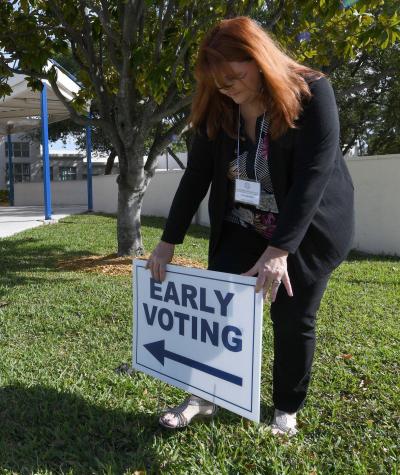On March 3, 2021, the U.S. House of Representatives passed the For the People Act, H.R. 1, a transformative bill that would set baseline standards and reverse coordinated efforts to restrict access to voting at the state level. This comes as lawmakers in 43 states have crafted more than 253 bills with provisions that restrict voting access.
Reforms such as automatic and same-day voter registration and nationwide early voting would address the failures we face election after election: long lines and overly aggressive voter-roll purges, particularly in communities of color.
Expanding early voting opportunities would make voting possible for low-income workers who cannot take Election Day off work. And while voter registration restrictions usually target people of color, same-day registration can alleviate this concern.
On March 1, 2021, the White House came out strongly in support of the For the People Act.
“In the wake of an unprecedented assault on our democracy, a never before seen effort to ignore, undermine, and undo the will of the people, and a newly aggressive attack on voting rights taking place now all across the country,” the statement read, “this landmark legislation is urgently needed to protect the right to vote and the integrity of our elections, and to repair and strengthen American democracy.”
After H.R. 1 is enacted, states would still have the sovereignty to run elections as they see fit by setting their own procedures, dates, and deadlines; the bill would standardize some key aspects to break down barriers. For example, it would eliminate the immense confusion caused by the previous patchwork of state laws that made it difficult for people to determine their voting rights eligibility and register to vote.
Campaign Legal Center (CLC) has been working to help educate people through its direct rights restoration service program Restore Your Vote because information on the rights restoration process is hard to access and 18 million Americans have past felony convictions.
Some common challenges include unclear information about what constitutes a disqualifying conviction, how out-of-state convictions effect an individual’s voting rights in their current state of residency, or the requirement that a person pay off fines and fees before they can regain the right to vote.
H.R. 1 would alleviate these concerns by guaranteeing federal voting rights for citizens with past felony convictions who have completed any term of incarceration and requiring states to inform citizens of their restored voting rights in writing.
The For the People Act’s solutions are broadly supported by the American people, including voting rights restoration, which has brought together unlikely bedfellows from the CATO Institute to the American Civil Liberties Union (ACLU), as well as the American Probation and Parole Association and a consortium of evangelical groups.
In recent years, red and purple states like Alabama, Arizona, and Louisiana have all enacted legislation to restore voting rights for the formerly incarcerated.
Automatic voter registration (AVR), a key component of the For the People Act, would transform and modernize our current registration systems. This bold, paradigm-shifting approach would add tens of millions of voters to the rolls, cost less, and bolster security and accuracy.
H.R. 1 encourages the use of the Electronic Registration Information Center (ERIC), the gold standard for list maintenance. Using this system, people are removed from the rolls when they are ineligible. This is a pro-security reform that does not ban voter purges, it only bans the faulty deletion of voters.
H.R. 1 uses the best list maintenance practices by asking Departments of Motorized Vehicles (DMV) to share information about their lists with the original state of residence for those voters, so they are not registered in two places. This better communication will ultimately result in more accurate rolls.
Our democracy works best when all citizens can vote without barriers. The U.S. Senate must urgently pass H.R. 1 and President Biden must sign it into law.
